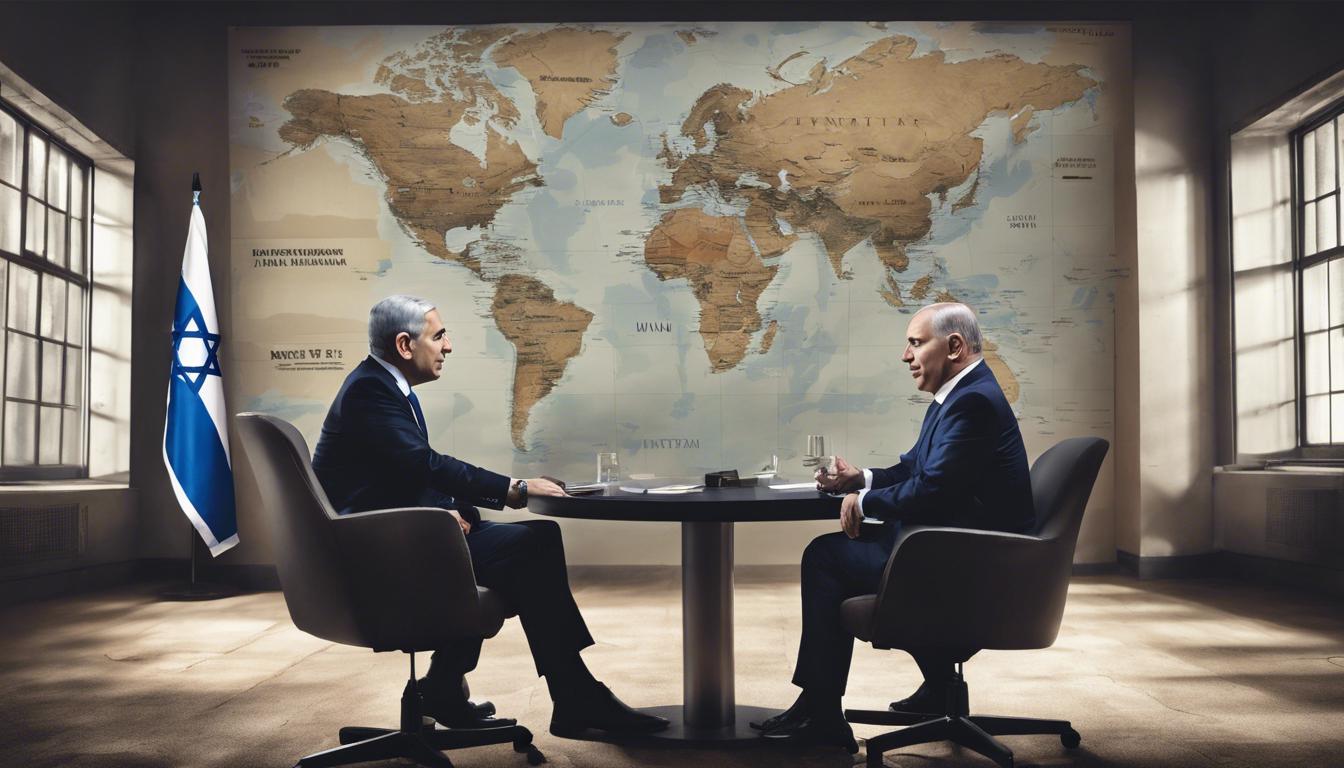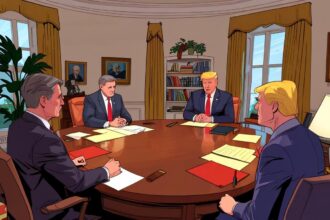UK Prime Minister Rishi Sunak yet to discuss with Israeli counterpart Benjamin Netanyahu following recent Iran attack on Israel, amidst broader global and domestic political maneuvers.
UK Prime Minister Rishi Sunak is awaiting a discussion with Israeli Prime Minister Benjamin Netanyahu following Iran’s recent drone and missile attack on Israel. Despite active British military support for Israel, a formal conversation between the leaders has not yet occurred. The UK government has stated that the delay in talks is merely due to scheduling issues and not a diplomatic disregard by Israel. Adding to the discourse, Foreign Secretary Lord Cameron has emphasized the need for a strategic and prudent response to the conflict from Israel.
In the meantime, Iran has drawn international condemnation and faces impending sanctions led by the United States targeting its oil exports. These measures are prompted by widespread concerns among global leaders, including US Treasury Secretary Janet Yellen, regarding Iran’s threat to regional stability.
Domestically, Prime Minister Sunak has introduced an extension of free childcare for two-year-olds to alleviate financial burdens on working parents, against a backdrop of escalating childcare costs in the UK. The Fawcett Society has called for a broader reform of the childcare system, highlighting funding inadequacies and a persistent gender pay gap linked to childcare expenses.
In military affairs, Britain’s decision to deploy RAF jets to defend Israel has sparked a national debate about the UK’s engagement in foreign conflicts and expenditure of resources. Critics question the strategic rationale behind the involvement and its implications for long-term UK defense policy.
Furthermore, Iranian journalist Pouria Zeraati, a recent stabbing victim in London, has urged the UK government to designate Iran’s Islamic Revolutionary Guard Corps as a terrorist organization. This appeal follows allegations linking the attack on Zeraati to the IRGC, heightening concerns about safety and security for Iranians in the UK.
Internationally, the ongoing escalation between Israel and Iran has escalated to aerial combat involving Hezbollah, with casualties reported on both sides and further strikes threatening a broader conflict. Global attention remains fixed on the region as nations and non-state actors determine their next moves amidst rising tensions.













